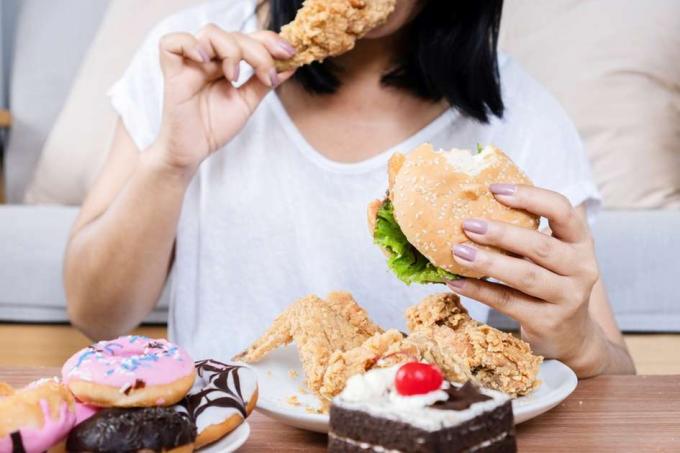
O food addiction It is a complex disorder, impacting many individuals in varied ways and being challenging to recognize. It is crucial to understand that it goes beyond the mere appreciation of food, becoming a harmful relationship with food.
Below, we present 8 signs that suggest excessive control of food over a person's life:
see more
Why do bananas turn dark? 4 simple tips to avoid this
Eating out has become 70% more expensive and VR is no longer enough…
The person feels tempted to eat excessively, ignoring logic and common sense, continually stuffing themselves.

You are willing to spend a lot of money on specific foods, regardless of the cost.
Consciously consume foods with ingredients that are harmful to health, without caring about what you are eating.
You can't waste food and can overeat, even when you're already full.
You feel guilty and ashamed about what you eat, resulting in a continuous cycle of self-reproach.
He promises he won't eat too much, but he always ends up giving in.
We turn to food to deal with emotions, which can be a response to depression, anxiety or boredom.
You're constantly on the hunt for the next miracle diet or supplement.
Developing a healthier relationship with food involves eating to nourish your body, not just to calm your emotions. Practicing positive affirmations daily, such as “I have complete control over what I eat, when I eat, and how much I eat,” can help change negative energy and unhealthy eating habits.
However, it is important to remember that, in more serious cases, it is advisable to seek help from a professional.

